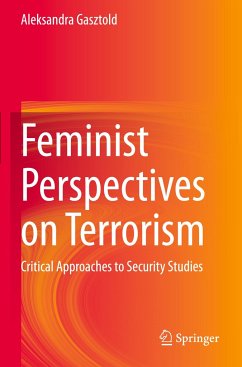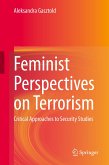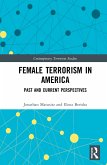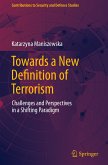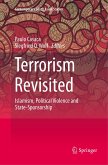This book explores terrorism and security issues from feminist perspectives, putting gender and androcentrism at the heart of its analysis. It argues against traditional research approaches to political violence, and terrorism in particular, that are dominated by the "male-gaze" and individual stereotypes and perspectives, and that feminist approaches offer a fresh perspective on security research. Our current understanding of political violence is primarily based on the experiences of men, and as such, the challenge in terrorism and radicalization research is to demonstrate that women's studies on security and terrorism satisfy certain universal criteria. The author shows how a post-positivist approach can be useful in gaining insights into terrorism and violent extremism, and how to address these phenomena. The book presents theoretical foundations based on various feminist assumptions, and exposes the essence of feminism, its conceptual grid, gender variabilities and the developments in feminist thinking and theory. Furthermore, it discusses the trends in feminist epistemology, and explains female radicalization to terrorist activity, the specificity of female terrorism, and the roles of women in deradicalization processes, as well as their impact on counterterrorism policy. The book concludes that gender difference as a constitutive variable of social reality is of key importance in studies on terrorism and counterterrorism.
Bitte wählen Sie Ihr Anliegen aus.
Rechnungen
Retourenschein anfordern
Bestellstatus
Storno

